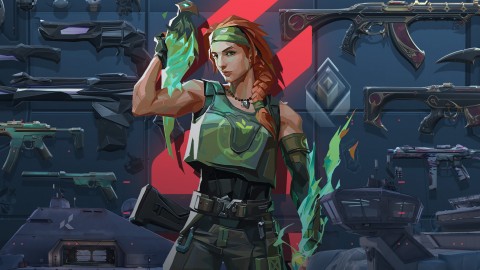
You know the scene: the hero strides purposefully through the raging battle, heads flying and swords clashing on all sides, to kneel by his fallen brother’s side, clutch his amulet to his forehead and let loose an anguished roar of grief to the sky. Well, that’s how I feel going on Twitter these days to ‘like’ someone’s new book.
Twitter, as the actor Sam Neill pointed out this week, has turned toxic. If Facebook today is like A Quiet Place – everyone sneaking around trying not to make a noise for fear of being ripped to shreds by Dominic Cummings’ stalking data harvesters – then its chirpy cousin has turned into War For The Planet Of The Apes.
Historically it’s a fantastic forum for mobilising and globalising hugely important issues and campaigns. But it’s also, today, where those movements go to get diminished, undermined, diluted, derailed and sidetracked – a place where a vital new movement for civil rights and equality on which actual lives depend gets made, within days, all about Papa Lazarou. There are still insightful, educational and knowledgeable threads out there trying to educate, focus and guide society down the rightful path, but you only have to scroll down a few replies and you’re holding your face in a bin fire.
In a global open chatroom where people naturally tend to criticise and retaliate against criticism rather than propose or engage with constructive ideas – and, guess what, not everyone’s who they say they are – bubble rage has inevitably prevailed and civility broken down. It’s only a matter of time before the cute blue bird gets replaced by a shrieking hawk of judgement.
Twitter has made online life such a dispiriting minefield. I’d like to be able to recommend an article I’ve enjoyed without being held personally accountable for every single statement made in it. I enjoy making up my own mind on topics without being told what’s acceptable for me to think.
It’s the intrinsic vindictiveness that alienates me. I understand where it comes from. In a world full of downtrodden malcontents – all shackled into late-stage capitalism’s fundamental quasi-poverty and kept out of the pub for three months – it will feel like punching in any direction is punching up. But after years of brewing, it’s created an endless, scrolling mass of judgemental misanthropy, based largely on assumptions of inference in any nonconformist tweet you care to target.
My reputation as a cruel crusher of indie dreams is a media façade I’ve carefully constructed over decades – in fact, I’d rather assume the best of everybody and regretfully admit when I was wrong than assume the worst of everyone. At a public execution, I’d rather turn away than barge my way through the braying hordes in the hope of catching some blood on my tongue. Twitter – and, by extension, humanity – isn’t for me any more.
Its value, I’ve found, has declined in inverse proportion to its rising bile. I can get my news directly from phone apps without risking my family’s future by casually commenting on… well, anything. I only really log on to post my articles for anyone who follows my work, and I could probably keep most of them updated in a not-too-cumbersome Whatsapp group.
I prefer to have reasoned discussions with psychologically stable people I can look in the eye and be 98 per cent sure they actually exist, and I can get a quicker, easier and more satisfying laughter response just by shouting “GUNGE!” at my two-year-old. If I want to be reminded that (to take just this week as an example) I’m “retarded”, “insufferable” and the worst thing to happen to music journalism since Gary Bushell, I’ll just unmute my interior dialogue.
The final nail, of course, is the cancel culture debate, the point where Twitter really started eating its own tail. A once-promising platform has become consumed by the innate human traits of hatred, arrogance, accusation and superiority. And it’s folded in on itself in a bitter skirmish over whether its self-imposed reason for existing – namely cancel culture – even exists. Watching this was like watching a prototype warbot hit a programming bug and start laser-gunning its own legs off.
That bug was the result of Twitter developing two natural but dehumanising characteristics of mob mentality. First, a brutal new binary – in Twitterworld people are either good or bad, no in between, and every faceless humanoid must be branded and filed away as such as fast as the Opinion Arbiters can process them. And second, the age-old idiocies of blind association and assumed complicity. Back when the NME had a letters page, we spent endless hours explaining, again and again, that just because one reviewer had given Cold Arses On Broadway at the Bradford Bellend a savaging it didn’t mean that every one of us, being a disparate and disagreeable bunch of mostly drunk individuals, also advocated drowning them in a bucket of sick.
Likewise, you can sign a well-meaning (if utterly futile) open letter calling for more respectful and considered forms of discussion – the equivalent of jumping into a lion enclosure with a ball of wool – without signing up to all of the opinions of the other signees. You can wander past a platform without being instantly infected by any airborne wrongthink emanating therefrom. Newsflash: no-one on earth is exactly the same person with exactly the same opinions as they were 10 years ago, and you can even happily date, drink with or work alongside someone without condoning their entire personal worldview. I mean, there are people at NME who actually like Bastille.
Twitter, on the other hand, just wants to suck the bones out of everyone who inadvertently stumbles within 280 characters of a contentious issue. With users hardened, frustrated and embittered by the failure of all sensible online discourse over many years, the cancel culture debate descended into communal bloodlust, like Lord Of The Flies if Piggy’s corpse turned out to be a cake. The more innocent outliers and bumbling bystanders who got dragged down into the ‘Is there such thing as cancel culture?’ quicksand last week, the more ludicrous and self-defeating the entire social media experiment appeared.

What’s more, no matter how righteous, upstanding and correct the intentions of what’s better called ‘consequence culture’ (as Billy Bragg eloquently laid out in a recent Guardian blog) such a pile-on rabble mentality ultimately gets us nowhere. Creating a culture of fear might silence a discussion but doesn’t eradicate the problem. Twitter, it may surprise you, is not the world. You don’t ‘win’ a public debate by getting the plug pulled on your opponent’s microphone – they’ll just go and find a more receptive stage, hideous opinion intact and emboldened.
All the ‘cancelled’ Twitter ex-communicados, some of them well-intentioned types who stumbled unwittingly into the crossfire, are over on Parler right now, shunned and seething, quietly simmering their hate to boiling point, and you won’t even know they’re there until they all vote on something important. To claim a society-enhancing victory for getting a dodgy account closed is like claiming you’ve defeated coronavirus because you’ve firehosed your house with Domestos.
No, you defeat a virus – and bigotry and racism are viruses; festering and dormant, largely unseen – by studying it, understanding its transmission methods, its cellular make-up and how it multiplies, and then developing antidotes designed to cure, not kill, the host. But that takes skill, composure, thoughtfulness and – y’know what? – a tiny amount of respect for your opponent. That’s not going to happen on Twitter – all decency and perspective has long since given way to factional, malicious jeering on all sides, on all issues. It’s all-out slash-and-burn mob warfare, a dog fight, a PMQs.
So I took a deep breath, closed my eyes, and clicked Twitter out of my favourites bar. In my own small way, I cancelled Twitter. All of a sudden, ironically, the birds sang louder. If you catch me there in future, I’m just sneaking in to steal Tim Burgess away to a better place.
The post If the ‘cancel culture’ debate proved anything, it’s that the time has come to cancel Twitter appeared first on NME Music News, Reviews, Videos, Galleries, Tickets and Blogs | NME.COM.







